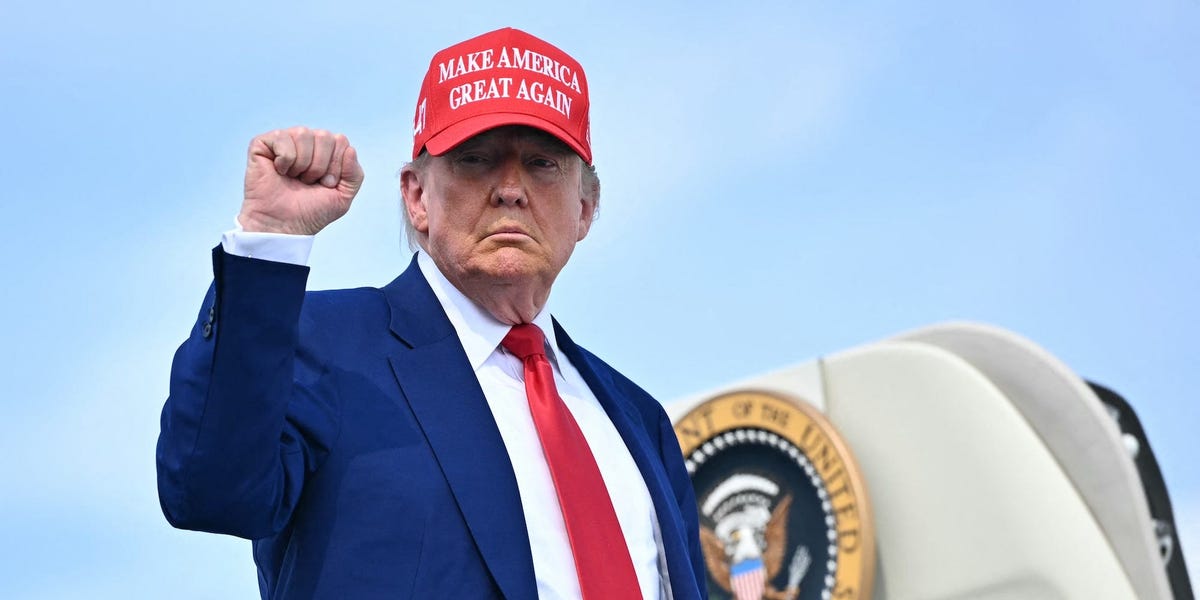Trump’s Legislative Vision Brings AI to Forefront
Former President Donald Trump is making waves once again with his ambitious legislative agenda for a potential second term. Dubbed the “Big Beautiful Bill,” this proposal encompasses a broad range of Republican priorities — but one provision in particular has sparked debate among his staunchest supporters: the regulation of artificial intelligence (AI).
Trump’s allies and supporters in the MAGA movement generally align on issues such as immigration, tax cuts, and limiting government oversight. However, the inclusion of AI regulation in the proposed legislation has caused a noticeable rift within the movement. While some see it as a necessary move to protect American jobs and values, others view it as an overreach that contradicts conservative ideals of limited government intervention.
A Push for AI Oversight
According to insiders familiar with the plan, the AI provision in Trump’s bill seeks to establish a federal framework for monitoring and, in some cases, banning certain AI technologies. The motivation behind this measure is rooted in concerns over national security, job displacement, and the potential misuse of AI by foreign adversaries and domestic institutions alike.
“We’re seeing the rapid development of AI tools that could fundamentally transform our society,” said a senior advisor involved in drafting the bill. “President Trump believes we need guardrails in place before it’s too late.”
The proposal reportedly includes restrictions on AI-generated content, limitations on the use of AI in surveillance, and regulations to ensure AI development aligns with American values. It would also allocate funds for AI literacy programs and create a new federal office dedicated to AI governance.
Diverse Reactions Within MAGA Ranks
The reaction from Trump’s base has been far from uniform. Some conservatives, particularly those focused on tech accountability and ethical governance, have welcomed the idea of AI regulation. They argue that unchecked AI development could lead to widespread job automation, biased algorithms, and increased censorship by tech giants.
“We can’t let woke corporations and foreign powers control the future of AI,” said one Trump-aligned tech policy advocate. “This bill is about putting America first in a rapidly changing world.”
However, libertarian-leaning factions within the MAGA movement have expressed concern. To them, federal oversight of technology represents a slippery slope toward government control and stifling innovation.
“This kind of regulation is exactly what we’ve been fighting against,” said a conservative think-tank scholar. “We should be empowering private enterprise, not creating more bureaucracies.”
Tech Industry Pushback
Beyond the political sphere, the tech industry has also responded with skepticism. Leaders in Silicon Valley and startup communities argue that sweeping federal regulations could stifle competitiveness and discourage innovation.
“AI is still in its early stages, and the U.S. needs to lead in this space,” said a CEO of a major AI firm. “Overregulation could hand the advantage to China and other global competitors.”
Nevertheless, some in the industry support responsible regulation and acknowledge the need for standards around transparency and data usage. The debate reflects broader tensions between innovation and ethics in the age of AI.
Trump’s Strategy Going into 2024
As Trump positions himself for a potential return to the White House in 2024, the Big Beautiful Bill is being touted as a cornerstone of his campaign. The legislation is expected to be officially unveiled in early 2025 if he is elected.
Trump has repeatedly emphasized the importance of technology and national security in his public appearances. By highlighting AI regulation, he is attempting to address growing public concerns while differentiating himself from both Democratic and Republican rivals who may be less inclined to take a hard stance on tech oversight.
“We’re going to make sure AI works for Americans, not against them,” Trump said during a recent rally. “That’s what leadership looks like.”
Looking Ahead
The controversy surrounding the AI provision in Trump’s bill underscores the evolving nature of conservative politics in the digital age. As technology continues to advance, the Republican Party — and particularly the MAGA movement — will need to navigate complex questions about the role of government in shaping the future.
Whether Trump’s AI regulation plan gains traction or not, it has undeniably reignited an important national conversation. The coming months will reveal whether this division within the MAGA coalition is a temporary disagreement or a deeper ideological fracture.
This article is inspired by content from Business Insider. It has been rephrased for originality. Images are credited to the original source.








